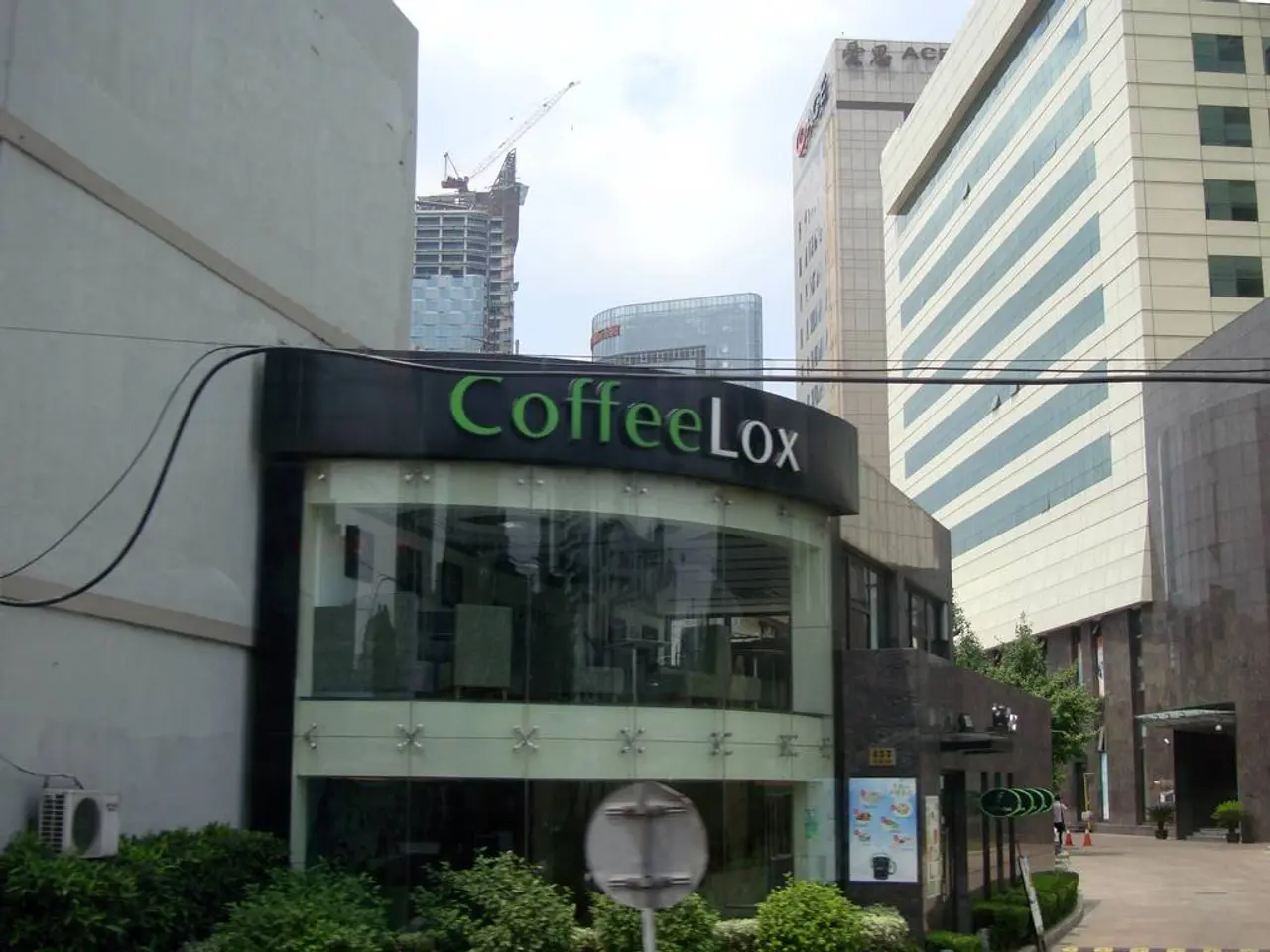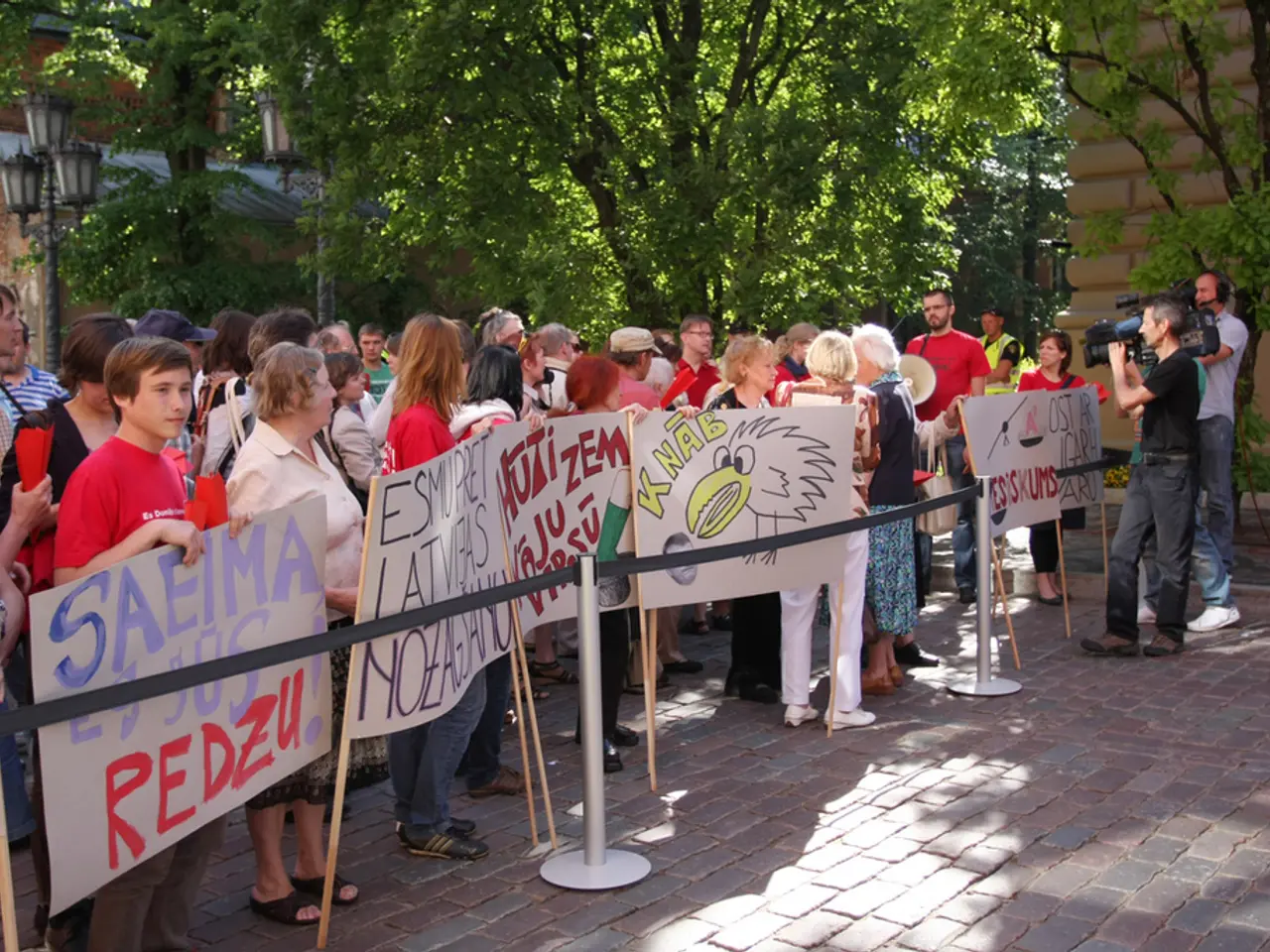Solar owners frequently encounter delays in receiving their earnings for several months. - Solar plant operators occasionally face delayed payments, spanning several months.
In recent times, owners of private solar panels in North Rhine-Westphalia, Rhineland-Palatinate, and Lower Saxony have been facing months-long delays in receiving feed-in compensation. This issue is primarily attributed to Westnetz GmbH, the largest distribution grid operator in Germany, which is responsible for grid operation and compensation payments in these regions.
The surge in new photovoltaic installations has put a significant strain on Westnetz's processing capacity, causing administrative and processing bottlenecks. Delays are also attributed to technical and verification checks, staffing shortages or resource limitations, system or procedural updates, and regulatory complexity.
Westnetz GmbH, a subsidiary of Westenergie and owned by Eon, operates approximately 175,000 kilometers of lines. However, the high workload has resulted in backlog delays, with households in North Rhine-Westphalia reporting around 65 complaints since the beginning of the year, some of whom have been waiting for their money since 2021.
Consumer advocates and consumer centers in various federal states also report an increase in complaints, particularly in North Rhine-Westphalia and Rhineland-Palatinate. Poor communication is a criticism often levelled against Westnetz in these complaints.
The Federal Network Agency, responsible for regulating the energy market, has reported that in most cases, payments are made smoothly and without delay. However, they are in contact with the affected grid operators to address the issue of delays. The Agency has initiated a monitoring procedure against Westnetz due to stronger complaints about delays, primarily caused by a larger IT conversion.
Currently, the feed-in compensation for small systems that only partially feed electricity into the public grid is 7.94 cents per kilowatt hour, and for full feed-in, it is 12.60 cents. It is important to note that if a grid operator is late in making a payment, interest may be due.
In some regions such as Saxony and Saxony-Anhalt, significant delays are also being reported with the operator Mitnetz, primarily due to the aftermath of an IT conversion. Meanwhile, in Thuringia, Schleswig-Holstein, Lower Saxony, Bremen, Hesse, or the Saarland, consumer centers report occasional complaints but not to the extent seen in North Rhine-Westphalia and Rhineland-Palatinate.
From August, the feed-in compensation for solar panel systems will decrease by one percent. Despite these challenges, the shift towards renewable energy sources remains a priority for the German government, with solar power playing a crucial role in achieving this goal.
For solar panel owners experiencing delays, it is advisable to first contact the grid operators. If a dispute arises, claims can be enforced in court. The compensation for these delays will be paid retroactively by Mitnetz.
Claudia Kreft, an energy expert at the Consumer Center in Thuringia, stated that delays of over a year are not uncommon. As the solar energy sector continues to grow, addressing these administrative and processing challenges will be key to ensuring a smooth transition towards a more sustainable energy future.
- The delay in community aid, specifically for the development of the renewable energy sector through solar panel installations, has been a notable issue for households in North Rhine-Westphalia and Rhineland-Palatinate, with some residents waiting for compensation since 2021.
- As the focus on sports and activities continues to grow, increasing investment in community programmes, such as promoting solar energy, can encourage positive changes in communities while simultaneously addressing policy matters, like the challenges faced in the fisheries sector.






